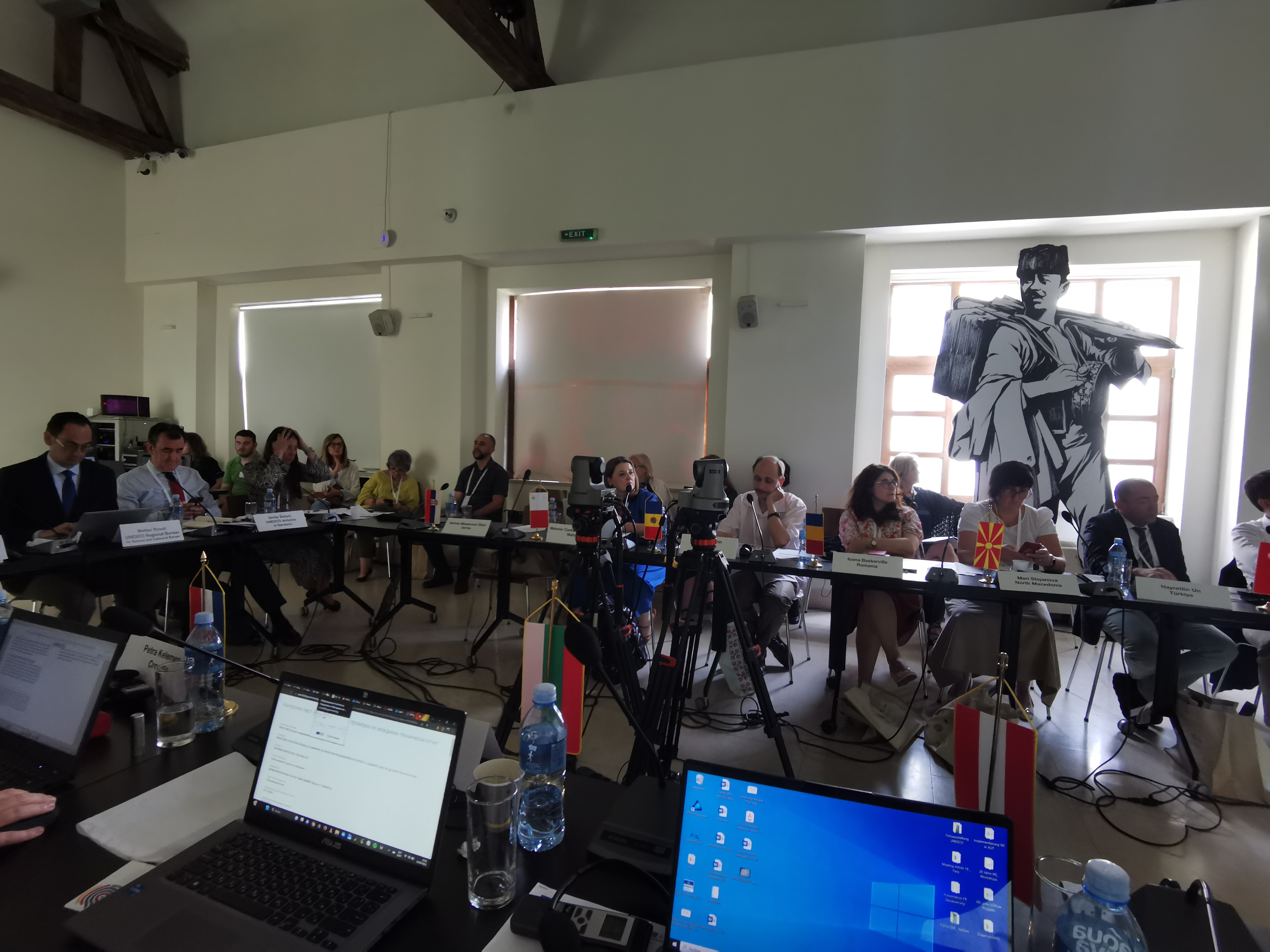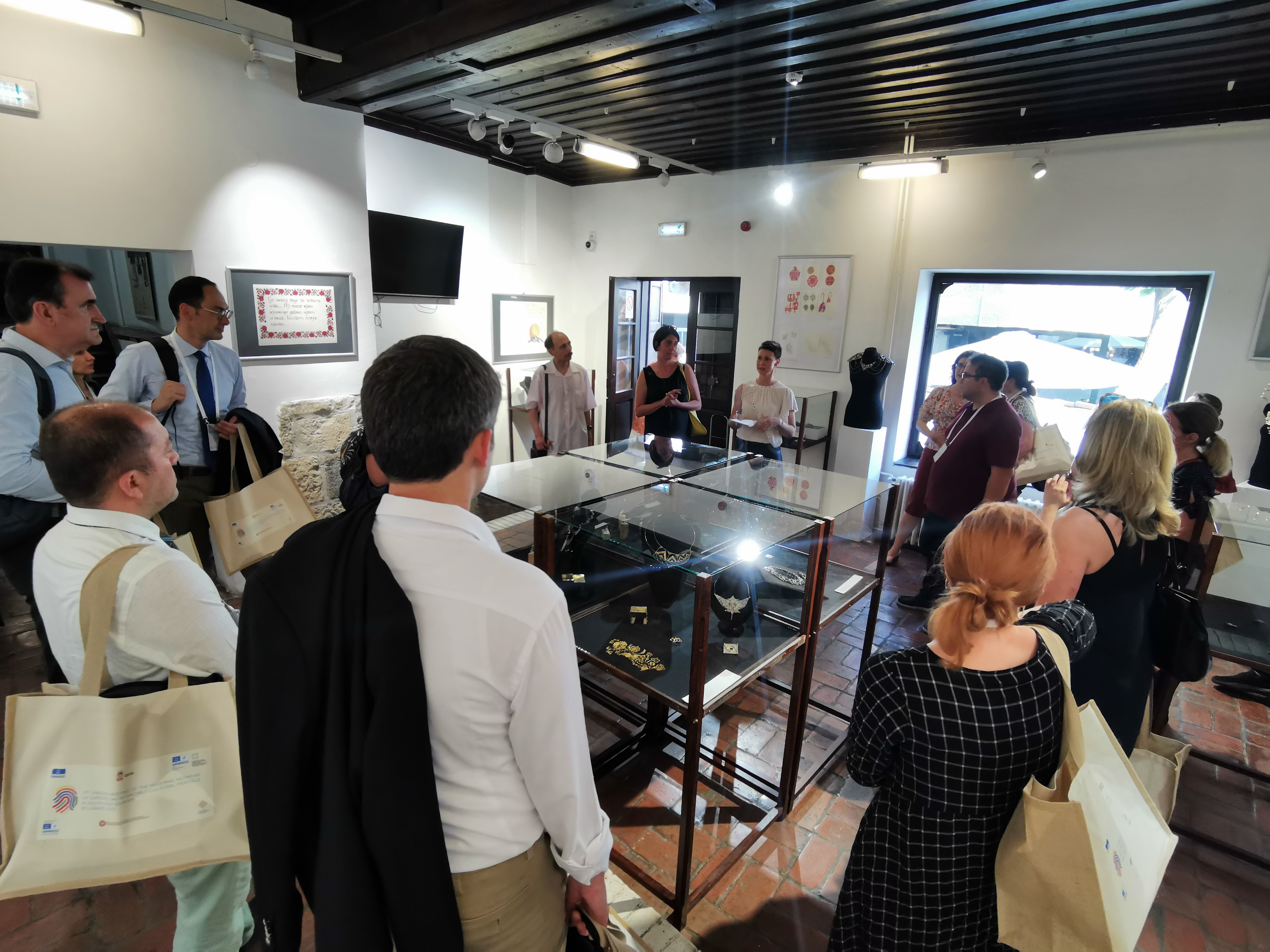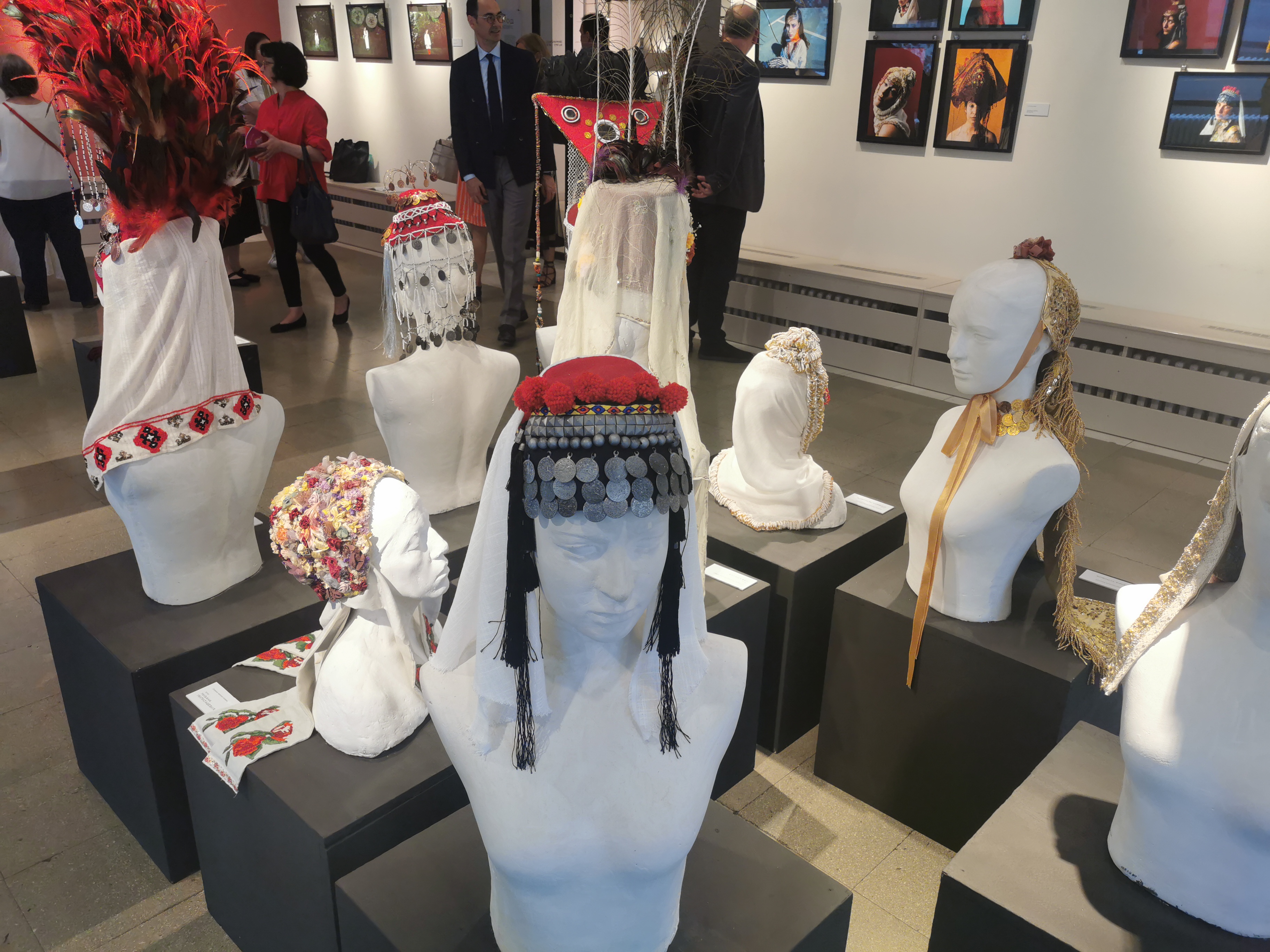17th Meeting of the Regional Network of Experts on Intangible Cultural Heritage in South East Europe
The 17th Annual Meeting of the Regional Network of Intangible Cultural Heritage Experts in South-Eastern Europe took place in Belgrade, Serbia, on 22-23 June 2023. This annual meeting is an important forum to strengthen exchange and cooperation in this region and to raise awareness of the importance of intangible cultural heritage. It also provides a valuable platform for the exchange of knowledge and experience in the field of intangible cultural heritage.
The meeting in Belgrade, Serbia, was hosted by the Serbian Ministry of Culture and jointly organised by UNESCO through its Regional Office in Venice and the Regional Centre for the Safeguarding of the Intangible Cultural Heritage in South-Eastern Europe (UNESCO Category 2 Centre based in Sofia, Bulgaria). The meeting brought together experts from different countries in South-Eastern Europe dealing with the preservation and promotion of intangible cultural heritage. The main topic was the dissemination and preservation of intangible cultural heritage through the education system.
Following on from the previous edition, this year's meeting further explored the link between intangible cultural heritage and education, with a particular focus on secondary/vocational/TVET and higher education. Austria, together with Italy, is one of the observing countries participating in the sessions. The importance of TVET (technical and vocational education and training) and higher education institutions in the work around the Convention was repeatedly stressed by the experts; be it in the transmission of certain craft techniques (through the dual system of many vocational schools), as well as tertiary education institutions contributing to the exploration of various practices. Through the sharing of good practices, ideas and challenges are presented and considered. For example, TVET schools in Greece are encouraged through (financial) support to create special curricula to teach the techniques of a traditional boat building craft in order to preserve this knowledge. But also in Malta, through targeted projects in cooperation with the Malta College of Arts, Science & Technology, young people and adults are being introduced to training and learning various local crafts in order to open up further job opportunities for them. In terms of the contribution of universities, there are a number of faculties that teach forms of intangible heritage or provide important know-how to study living heritage. However, there are only a few examples (among others Moldova, Croatia and Serbia) that deal with intangible cultural heritage in the context of the 2003 Convention, its conservation, potential and/or management. In many countries, including Austria (see here: https://cutt.ly/TwtMS5tt), individual initiatives have been launched to integrate intangible cultural heritage into university courses as individual courses or lectures.
The challenge for many of the experts remains to find processes to encourage TVET schools and university courses to take up the topic of intangible cultural heritage and to integrate it into their curricula more systematically and in the long term. The results of the discussion and the resulting recommendations formulated after the meeting will serve as input for further work steps of the Secretariat of the 2003 Convention. These include closer cooperation between the Intangible Cultural Heritage Secretariat in Paris and the education sector or the coordinators of the ASPnet Schools (so-called UNESCO schools) for a better visibility of the topic of living heritage, as well as national harmonisation between different faculties dealing with forms of living heritage.
For more information on the meeting and intangible cultural heritage in South East Europe, please visit the official UNESCO website: https://www.unesco.org/en/articles/17th-annual-meeting-regional-network-experts-intangible-heritage-south-east-europe




![[Translate to EN:] © J. Ségur/ZED, with the permission of UNESCO](/fileadmin/_processed_/d/b/csm_Convention-2003-IKE_0832a6a47d.jpg)
![[Translate to EN:] © ÖUK](/fileadmin/_processed_/3/9/csm_P1011318_7eac86402f.jpg)

![[Translate to EN:] © Weitblickfilm](/fileadmin/_processed_/9/8/csm_Workshop_17_2dee1e1fd8.jpg)